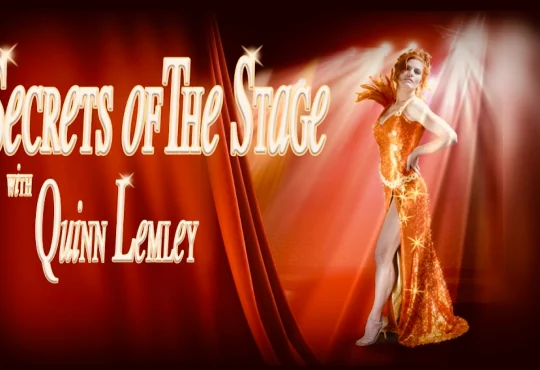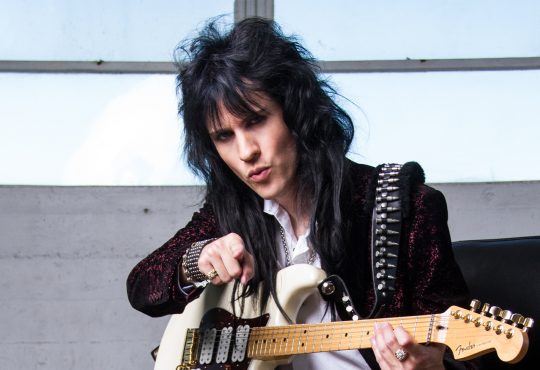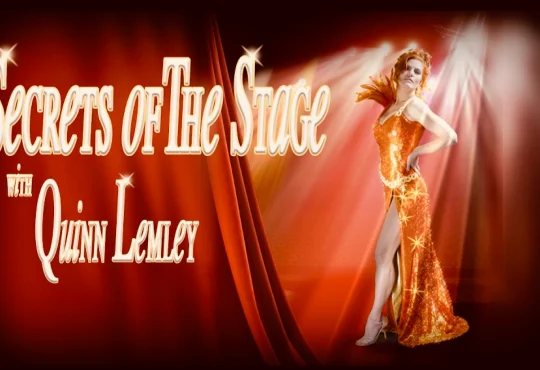‘Succession’ Season 3 Is a F**king Killer
When last we left the corrosive Roy family in the Succession Season Two finale, prodigal son Kendall (Jeremy Strong) had just publicly accused cruel patriarch Logan (Brian Cox) of being complicit in their company’s pattern of heinous sexual and human rights abuse. When the HBO Emmy winner finally returns after a two-year, Covid-related absence, Logan gets Kendall on the phone to congratulate him on temporarily outmaneuvering his old man, and wonders what he wants in exchange for his renewed loyalty. Kendall insists that they are no longer on the same side, that he found Waystar Royco’s crimes abhorrent, and that he acted with the greater good in mind. His father bellows that all Kendall was doing was making a move in the never-ending, globe-altering game of mergers and acquisitions that has long been their family’s stock in trade. Logan cannot even fathom the idea of another person — a member of his own family in particular — acting out of anything but the most naked self-interest, and Kendall’s claim otherwise only confuses and enrages him.
It is not much of a spoiler for Season Three to tell you that Logan is largely proved correct. In time, Kendall’s new woke persona (“Fuck the patriarchy!” he will shout unironically to paparazzi) is revealed primarily as an excuse to lash out against the father who was in the process of trying to send him to prison to save his own hide. But it’s not entirely a pose, any more than the periodic pangs of guilt felt by his siblings Shiv (Sarah Snook), Roman (Keiran Culkin), and (to a much lesser extent) Connor (Alan Ruck) over the things that they and the company do on behalf of Logan’s bottomless appetite for money and influence. Succession is often at its best in that delicate junction between intentions and actions, where some of the most powerful people in the show’s fictional universe give in to monstrosity because they ultimately fear losing their power more than they care about anything else.
Though Logan and Kendall spent much of the first season at odds with each other, Season Three is almost entirely about the Roy family civil war and its collateral damage — which, as usual, impacts extended family members like Shiv’s husband Tom Wambsgans (Matthew Macfadyen) and Cousin Greg (Nicholas Braun), but Waystar Royco execs Gerri (J. Smith-Cameron), Frank (Peter Friedman), and Karl (David Rasche), and eventually much of the American political system and the global economy. This adds a slightly more propulsive quality to what was already one of the most relentlessly-paced shows on television, even as creator Jesse Armstrong wisely sticks with the crisis-of-the-week episodic structure that has served him so well to this point(*).
(*) It’s here that I should fess up that I didn’t like Succession back when it debuted. I admired the performances and the creativity of the insults the Roys hurled at one another, but struggled to care about any of the moves and countermoves Kendall and the others were making. After arriving at several different “I swear, this is when the show gets great!” episodes recommended by friends and still not feeling invested, I stopped watching. Over the course of the pandemic, I gradually caught up, though by that point, it felt like I had already watched this stuff, because I was on Twitter as all my Succession-adoring pals kept raving about “Boar on the floor!” and how you can’t make a Tomelette without breaking some Gregs. Since the show is at least two-thirds dark comedy to one-third introspective drama, knowing the punchlines in advance didn’t necessarily help me fall in love. But — as happened for me with Showtime’s Billions, another premium-cable series filled almost exclusively with rich assholes trying to hurt one another while swapping creative insults — I reached a point with Succession where Stockholm Syndrome set in and I began to understand the point of view of these characters; that made it easier to enjoy the acting, direction, and writing. By the time I finished watching these Season Three screeners unspoiled by social media, I was all in. I will occasionally still ask myself why I’m watching these bad people bringing naught but destruction to those around them, but in the same way I occasionally felt about, say, The Sopranos, a show I otherwise adored.
Season Three picks up in the immediate aftermath of Kendall’s explosive press conference. The first few episodes find characters scrambling to find safe harbor both geographically (Logan and several others try to identify a country that offers both luxury accommodations on short notice and no extradition treaties with America) and organizationally, as everyone is forced to pick a side between father and son. As the characters keep regrouping in different locations and configurations of loyalty, there’s a risk that this could all start feeling repetitive or mechanical. But again and again, Armstrong and his collaborators keep things fresh by reminding us that spinelessness is the defining characteristic for so many of its regulars. (Even the domineering Logan can at times find himself paralyzed until he has a clearer sense of which direction the wind is blowing around him.)
It helps that by this point, the writers and actors have each character’s comic voice boiled down to their very essence. While listing all the kinds of trouble Kendall has placed the company in, CFO Karl at one point describes the situation as “31 flavors of fuck right there.” It feels like Armstrong and Brian Cox are still finding new flavors of Logan telling the people around him to fuck off, from explosively aggrieved to almost tender. There are plenty of delightful bits of verbiage, from Logan’s disapproving brother (and Greg’s disapproving grandfather) Ewan (James Cromwell) referring to “my brother and his gang of crapulous shills” to Shiv and her siblings tossing around multiple variations of the phrase “piss mad” as they try to decode Logan’s behavior while he’s enduring a minor health problem.
The show’s supreme comedy team — and, in ways that still feel unexpected, its emotional core — remains Tom and Cousin Greg. As the two outsiders in the inner circle, they are perpetually more vulnerable than a Shiv or Roman, and keenly aware of this. They turn to each other for comfort, but often only seem to know how to express their support through threats and insults. At various points in the season, each is convinced he will be the fall guy for the scandal Kendall exposed, leading Tom to study up on the best methods of making toilet wine in prison, while the gangly Greg(*) worries, “Because of my physical length, I could be a target for all kinds of misadventure” from fellow inmates. And as with the Roys themselves, you can periodically glimpse Tom or Greg recognizing that what they are involved in is an absolute horror show for themselves — and, at times, for the planet — before getting too easily sucked back into this toxic environment.
(*) Armstrong, like his former collaborator, Veep creator Armando Iannucci, not only understands that tall people are one of the few unprotected targets left in modern satiric life, but how to turn a simple physical difference into a seemingly limitless source of humor.
The civil war arc brings in a bunch of new guest stars, including Adrien Brody as an investor Kendall and Logan have to simultaneously woo despite their estrangement, Sanaa Lathan as a powerful lawyer both sides are trying to hire, and Alexander Skarsgård as a socially awkward tech executive considering a merger with Waystar. Everyone brings their A-game, but they’re always treated as complementary flavors, there to show us new aspects of the Roys rather than to take over the show.
Much of this is played for cutting humor, but in ways that expose a lot about how dysfunctional all these people are, alone and in any combination. And because the show continues to lean so heavily on the farcical black comedy of it all — particularly during an episode set at a shareholders meeting to decide if Logan keeps control of his empire — it only makes the more dramatic moments hit harder. That’s true all the more so when those moments involve Kendall or Shiv, the two characters who seem most capable of change, and thus whose failures of nerve tend to feel the most painful.
Because Succession was very much a commentary on the Trump era, there was a chance its belated return could feel out of sync with the times, in the same way that Veep somehow seemed less ridiculous when its last few seasons aired after the 2016 election. But between the pandemic (which is not occurring in the show’s parallel reality), climate change, the rise of totalitarian governments, and a half-dozen other crises, it’s not as if the Roys are coming back to a world of rainbows and lollipops. Their show remains a key fictional text explaining how we got into these various messes, but also a marvelous occasional reward for all of us stuck living through them.
Season Three of Succession premieres October 17th on HBO. I’ve seen the first seven (of nine) episodes.







